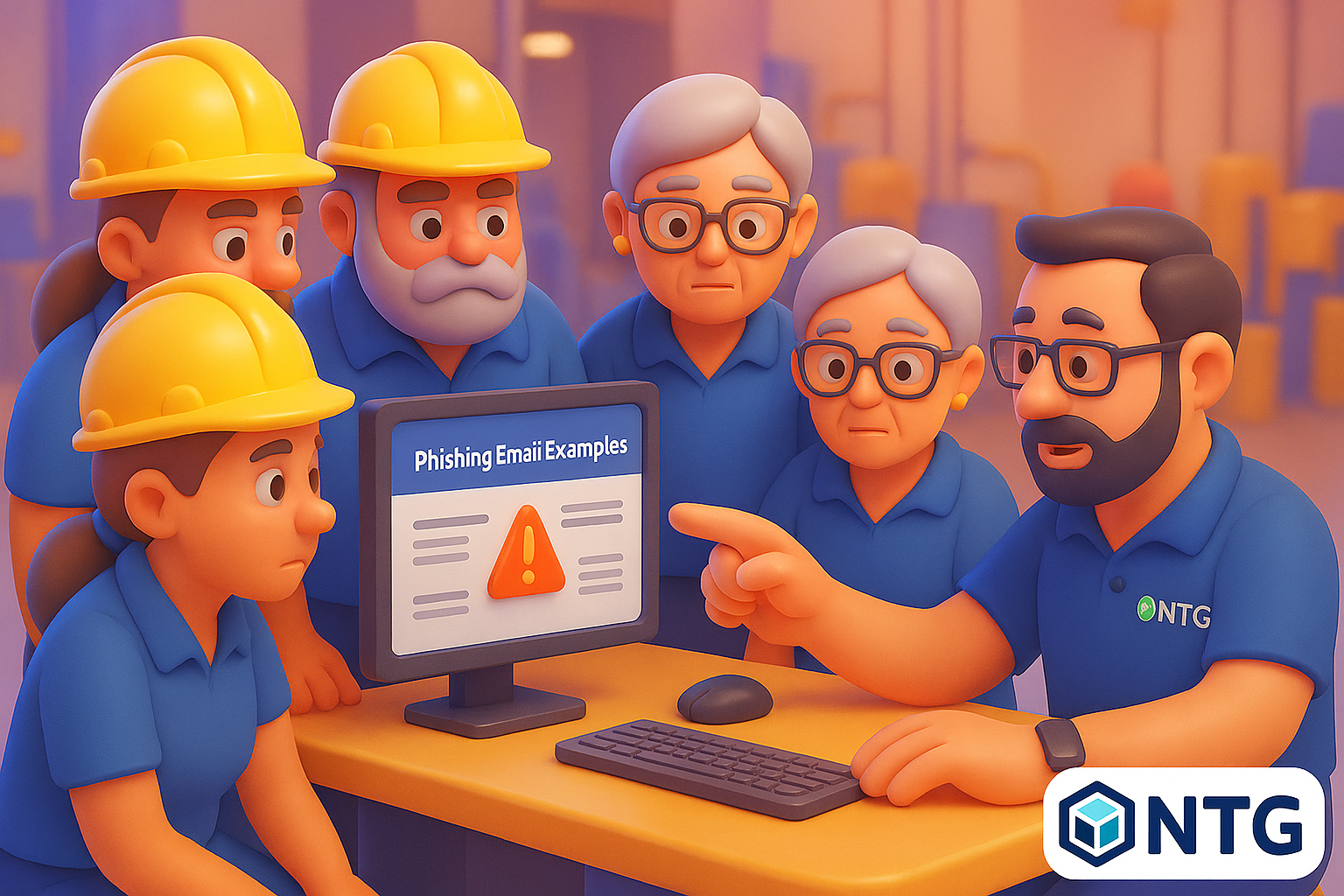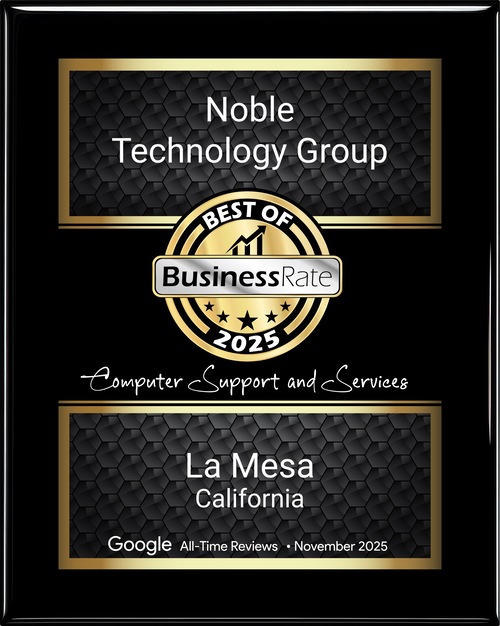
Security awareness training for San Diego businesses that need fewer incidents and faster audits
I am Peter Noble, founder of Noble Technology Group in La Mesa. For years, I have helped San Diego leaders protect what they have built, from precision manufacturers handling Controlled Unclassified Information to multi location service companies that rely on always on systems to bill customers, ship product, and keep teams connected. When people ask what truly reduces cyber risk, I do not start with a tool, I start with people. Security awareness training, delivered the right way, turns every person into a proactive defender and it changes behavior that protects revenue and compliance. As a security awareness training provider in San Diego, we deliver employee cybersecurity training and cybersecurity awareness training programs tailored for manufacturers and regulated businesses.
Why training is your strongest defense, and how to make it work
The old model was a long slideshow, a quiz, and a certificate that no one remembers a week later. That is not training, that is a checkbox. Real security awareness training looks like any effective business system. It is consistent, measured, role specific, and reinforced in the flow of daily work. When you treat training as a system, click rates on simulated phishing go down, report rates go up, and small mistakes get caught early. Your auditor sees clear evidence. Your insurer sees a lower risk profile. Your team sees security as part of how they serve customers.
At Noble Technology Group, training is built into our managed IT services. It is reinforced by responsive IT support and services. It is organized by our IT compliance services so that your lessons align with the controls you must satisfy. That alignment saves time, reduces confusion, and makes your next audit a calm walkthrough instead of a scramble.
Quick start, what you can do this month
If you want to know how to reduce phishing click rates and launch a monthly cybersecurity training program without overwhelming your team, start here.
Practical checklist to begin now
- People and roles, list high risk roles, finance, engineering, customer service, executives, front desk, plant floor. Write one behavior to practice weekly for each role and name a champion for each team.
- Processes and tools, confirm your phishing report method works and is easy to find. Confirm a central place for training evidence by team and by month. Confirm help desk playbooks reinforce training behaviors.
- Cadence and content, schedule a kickoff and a baseline phishing simulation. Prepare three micro lessons, phishing, passwords and multi factor, data handling. Pick one tabletop scenario per quarter.
- Measurement and feedback, track click rate, report rate, and time to report. Share a one page summary with managers each month. Ask staff for two suggestions each quarter.
The core topics every team must master
- Phishing and social engineering, teach how to slow down, inspect sender details, and report quickly. Reward good catches.
- Passwords and multi factor, encourage approved password managers, explain prompt hygiene, provide a quick path to help.
- Wire fraud and payment change scams, require call back verification using a known number, keep a checklist near the keyboard.
- Data handling and classification, define sensitive data in plain language, set clear storage and sharing rules, label templates.
- Physical security and visitor management, teach tailgating awareness and clean desk practices where paper contains sensitive data.
- Incident reporting and first response, make it easy and safe to speak up, show what to capture, show who to call.
- Safe use of cloud tools, teach sharing settings, external invites, and removal of access when a project ends.
- Mobile and travel security, cover public Wi Fi, device encryption, and the risk of leaving devices in vehicles.
- Ransomware awareness training, explain how attacks enter and move, connect habits to backup integrity and business continuity.
- Acceptable use and practical policy, translate policy into three or four rules per role and keep them where people work.
Role based lessons that stick
Our managed security awareness training includes role specific content:
Finance
Teach finance wire fraud prevention training with a simple rule, email is not enough. Use a known phone number for confirmation before any account change. Provide a one page checklist at the workstation. Practice this step with short drills so it becomes a habit.
Engineering
Focus on engineering secure file sharing training, data labeling, and external collaboration. Show how to invite a vendor securely. Show how to revoke access after a project. Tie these behaviors to real systems your engineers use each day.
Front desk
Cover visitor management training, badge use, and tailgating awareness. Provide a friendly script for how to challenge unknown people inside sensitive areas. Reinforce that it is safe to ask and to escalate.
How to turn training into audit evidence
Auditors want proof, not promises. Capture attendance, quiz scores, and phishing simulation results. Store evidence in a simple structure by month and by team. Map each lesson to a control in NIST SP 800 171 or CMMC Level Two. Our approach supports CMMC Level 2 user training, NIST SP 800-171 awareness, and DFARS 252.204-7012 training requirements. This turns your training library into audit ready evidence and it reduces the stress that many teams feel during a review.
Real stories from San Diego leaders
As a security awareness training provider in San Diego, we design programs for manufacturers and regulated suppliers that need compliance and resilience.
FAQs about security awareness training
What is security awareness training
It is an ongoing program that teaches employees how to recognize and respond to cyber threats such as phishing, ransomware, and social engineering. The goal is steady behavior change that reduces risk.
How often should employees complete training
Monthly micro lessons with an annual session deliver the best results. Short, frequent lessons build habits that last and they respect busy schedules.
How do you reduce phishing click rates
Combine monthly phishing simulations with immediate feedback and role specific lessons. Track click rate, report rate, and time to report to measure progress.
What is the best monthly cybersecurity training program structure
A four week cadence works best, kickoff and baseline in week one, role specific lessons in week two, a tabletop in week three, and reinforcement in week four.
What compliance frameworks does security awareness training support
Our program supports CMMC Level Two, NIST SP 800 171, and DFARS 252.204 7012. We provide audit evidence for every lesson and simulation.
Ready to build a culture of security, let us talk
If you want a program that changes behavior and protects revenue, we would be honored to help. Schedule a short conversation to see how a monthly cadence would fit your team. Bring your concerns and your last audit report, we will outline a plan you can start next month.
https://nobletechgroup.com/initial-consultation/ or call 619 752 1620. We serve La Mesa, San Diego, National City, Chula Vista, El Cajon, and nearby communities.



